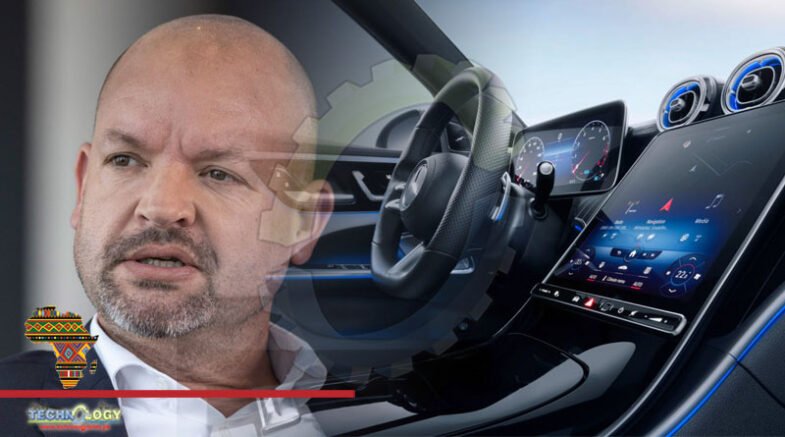The longer-term future of Mercedes Benz production plant in East London has been secured by investments to ensure its flexibility to produce mercedes benz electric vehicle with different powertrains.

The longer-term future of Mercedes Benz production plant in East London has been secured by investments to ensure its flexibility to produce vehicles with different powertrains. The move was driven by the global automotive industry transition to electromobility.
Member of the board of management of Mercedes-Benz AG responsible for production and supply-chain management Jörg Burzer said on Monday that there might be a time in the next 10-20 years when Mercedes-Benz will have to take a decision on whether it will be producing internal combustion engine (ICE) vehicles, hybrids or mercedes benz electric vehicle (EV).
But Burzer stressed that flexibility is currently one of the fundamental topics in Mercedes-Benz’s manufacturing business. “We are working on the assumption that by 2035 we will be able to produce 100% electric vehicles and so we are preparing the production network for that.”
We are working on the assumption that by 2035 we will be able to produce 100% electric vehicles…
This follows the announcement by some countries that ICE vehicles will be banned from 2035.
Burzer said Mercedes-Benz used some of the investments it made in South Africa for the production of the new C-Class to introduce flexibility in terms of powertrain technology.
“The South African plant could produce 100% hybrids. Obviously we have to prepare the drivetrain for that, but this secures the future,” said Burzer. “What is the key and most important topic right now is that our operations in South Africa are flexible in terms of powertrains. This is extremely important, especially since our South African plant is an export plant.”
R3-billion investment
Mercedes-Benz Cars announced in June that it had invested a further R3-billion in South Africa to boost its investment in the country to R13-billion for the production of the new-generation C-Class at its plant in East London.
Burzer said the East London plant is one of the cornerstones of Mercedes-Benz’s global production network. The new C-Class is only being built in two other plants, Bremen in Germany and Beijing in China.
Burzer said plants in Mercedes-Benz’s production network are not targeting the production of a certain percentage of ICE, hybrid or EVs but the flexibility “in this time of transition or transformation” to be able to produce vehicles according to market demand.
“What we don’t want to do is to invest heavily in EVs in all our plants right now while not being sure how the market conditions will develop, especially for a car manufacturer like us where we have locations that are very export-orientated,” said Burzer.
“The nice and very good situation that we have in South Africa is that we are completely flexible between ICEs and hybrids so we can react to market demand – and not only this year but also in the coming years. That is what we are basically trying to introduce in all our plants right now.”
Burzer said this flexibility prevents Mercedes-Benz from building factories that at a certain point of time will be unable to produce vehicles any longer because they are focused on only one powertrain.
Customers are dependent on how they can use any vehicle because of the recharging infrastructure
He highlighted that different markets and countries are developing charging infrastructure for EVs and hybrids at “different speeds”, adding that the products Mercedes-Benz produces are dependent on customer demand. However, customers are dependent on how they can use any mercedes benz electric vehicle because of the recharging infrastructure.
Burzer said small volumes of ICE vehicles will still be supplied to countries that are not that prepared for electromobility, but he believes all markets have to start preparing now for electromobility. “This will be the driving technology for the automotive industry in the future years,” he said.
Green paper
Burzer confirmed that he discussed the promotion of electromobility in South Africa with trade, industry & competition minister Ebrahim Patel at a function in June to celebrate the commencement of production of the C-Class at the East London plant.
The South African government in May took the first step towards creating a road map for the production of full electric vehicles with the publication of an auto green paper on the advancement of new energy vehicles in South Africa.
The green paper had extremely tight timelines and the aim was to finalise the strategy within 90 days to allow the policy proposals to be submitted to cabinet for consideration by October 2021.
Mikel Mabasa, CEO of automotive council Naamsa, said at the time the government had taken a very progressive route by publishing the green paper because new energy vehicles are the new future for the automotive industry.
Mabasa stressed that South Africa cannot afford not to play a significant role in the direction the world is taking in terms of the introduction of new energy vehicles. He added that the future of South Africa’s automotive industry depends on the outcome of discussions on the green paper because 64% of the vehicles currently produced in South Africa are exported.
Source Tech Central